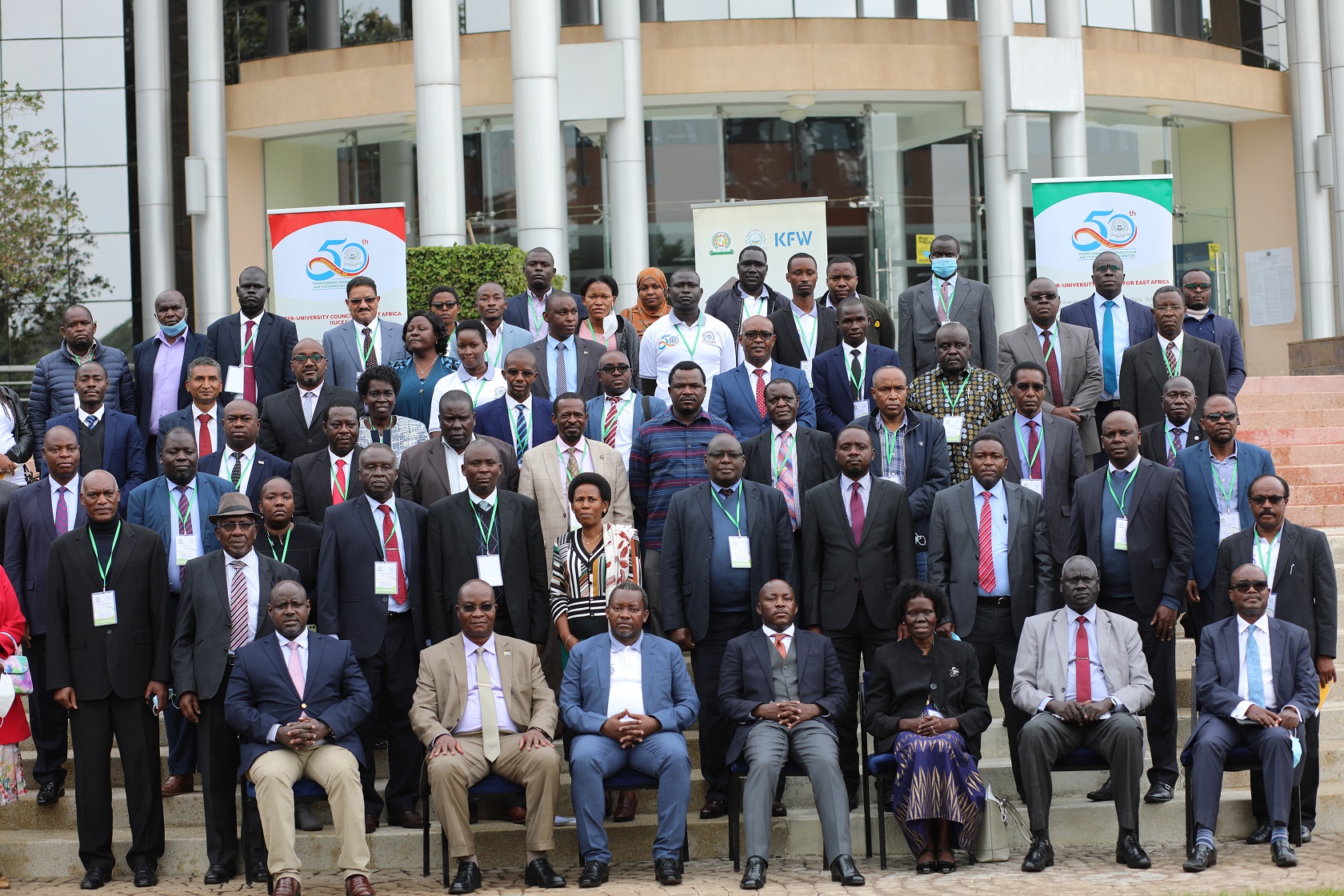
Vice Chancellors and Policy Makers meet to shape the future of higher education in EAC
Nairobi, 30th July, 2021 – Growing disruptions and new developments in higher education have prompted leaders and policy makers in the sector back to the drawing board to discuss the future of higher education in the East African Community (EAC).
Technological advancements such as artificial intelligence and augmented virtual reality coupled with alternative models of higher education, championed by technology firms, has emphasised the need to re-think the traditional model.
It is against this background that the Inter University Council for East Africa (IUCEA), a specialised institution of the EAC responsible for development of higher education in the region, organised a conference to start discussions and generate policy recommendations to shape the future of higher education the region.
Speaking at the Conference, Hon. Ken Obura, the Chief Administrative Secretary, who represented Kenya’s Cabinet Secretary for EAC and Regional Development, Hon. Adan Mohamed, asked IUCEA to take a lead in reforming higher education and guide policy direction to produce graduates with requisite skills for socio-economic transformation of the region.
“I challenge higher education institutions not to just be victims of change but to also impact change by producing graduates that are flexible and proactive in their response to changing times. This is the only way they will create impact in our economies,” Hon Mohamed said.
The Acting Director of Social Sectors at the EAC Secretariat, Mr. Stephen Niyonzima, who represented EAC Secretary General Hon. Dr. Peter Mathuki, underscored the relevance of collaborative research among universities in the EAC region to address socio-economic challenges in the region.
“I encourage IUCEA to bring our scientists together and establish regional research hubs or networks for the purpose of undertaking collaborative research targeting problems that beset the region,” Dr Mathuki said.
“There is need to constantly review and adapt education curricula to remain in tandem with the current development agenda of the region, needs and trends in the society and labour market,” added the Secretary General.
On his part, the IUCEA Executive Secretary, Prof. Gaspard Banyankimbona, reaffirmed IUCEA’s commitment to be a champion of reforms needed to refocus the higher education curriculum to meet the needs of the labour market by producing graduates with the capacity to solve the region’s socio-economic challenges.
“The emergence of new technologies has drastically changed the education landscape and put emphasis on skills in the production sector, which requires graduates with competencies that match the industry demands,” Prof. Banyankimbona said.
Globally, universities are facing competition from technology-driven platforms such as EdX, Coursera, and other similar platforms points as alternative forms of education.
For more Information Contact:
Corporate and Public Relations Office,
Office of the Executive Secretary,
P.O Box 7110, Kampala, Uganda
Tel: 256 414 256 251/2
Mob: +256 700 930 996
Email: This email address is being protected from spambots. You need JavaScript enabled to view it.
website: www.iucea.org
About IUCEA
Inter University Council for East Africa (IUCEA) is specialised institution of the East African Community (EAC) responsible for development of higher education in the region. IUCEA members include accredited public and private universities, commissions and councils responsible for Higher education in EAC Partner States.
